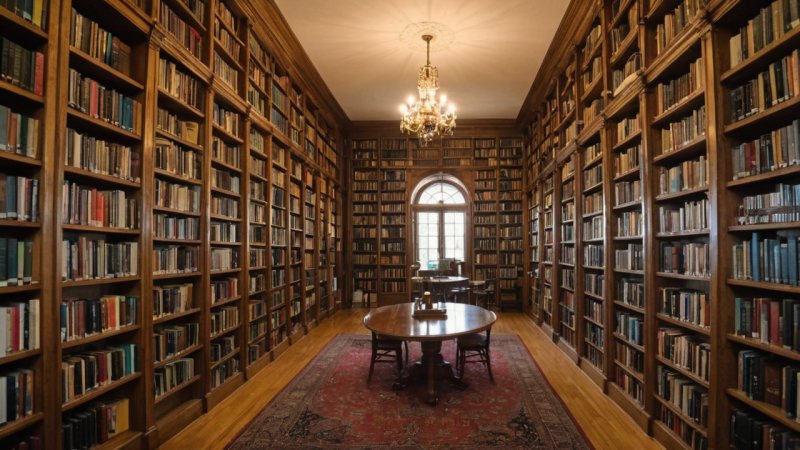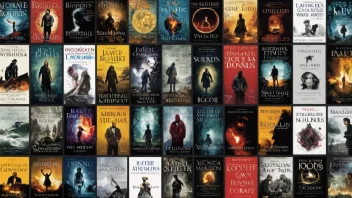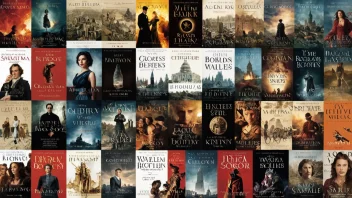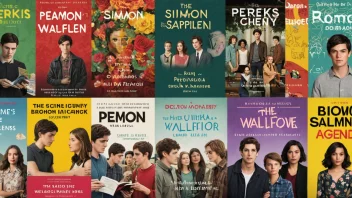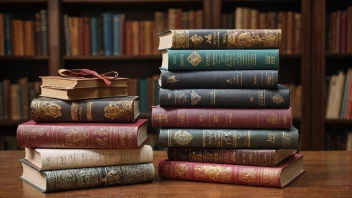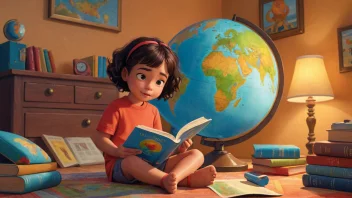Classic novels are a treasure trove of literary brilliance, offering insights into human nature and society that remain relevant across generations. Whether you're a seasoned reader or just beginning your literary journey, here are ten classic novels that are essential reads, each with its unique charm and depth.
1. **Pride and Prejudice by Jane Austen**: This beloved novel is a delightful exploration of love, class, and social expectations in early 19th-century England. Through the witty and spirited Elizabeth Bennet, Austen critiques societal norms while delivering a timeless tale of romance and self-discovery.
2. **Moby-Dick by Herman Melville**: Often hailed as one of the greatest American novels, Moby-Dick tells the story of Captain Ahab's obsessive quest to hunt the titular whale. Melville's intricate narrative weaves themes of revenge, fate, and humanity's struggle against nature, making it a profound and thought-provoking read.
3. **1984 by George Orwell**: A chilling portrayal of a dystopian future, Orwell's 1984 serves as a stark warning against totalitarianism and the loss of individual freedoms. The novel's exploration of surveillance, propaganda, and language manipulation continues to resonate in today's world, making it a must-read for anyone concerned about civil liberties.
4. **To Kill a Mockingbird by Harper Lee**: Set in the racially charged South during the 1930s, this Pulitzer Prize-winning novel tackles themes of racial injustice and moral growth. Through the eyes of young Scout Finch, readers witness the complexities of human behavior and the importance of empathy, making it a powerful and essential classic.
5. **The Great Gatsby by F. Scott Fitzgerald**: Capturing the essence of the Jazz Age, this novel is a poignant critique of the American Dream. Through the tragic figure of Jay Gatsby, Fitzgerald explores themes of love, wealth, and the elusiveness of happiness, all set against the backdrop of 1920s New York.
6. **Crime and Punishment by Fyodor Dostoevsky**: This psychological thriller delves into the mind of Raskolnikov, a young man who commits a murder to test his theories on morality. Dostoevsky's exploration of guilt, redemption, and the human psyche makes this novel a profound examination of the moral dilemmas we face.
7. **Wuthering Heights by Emily Brontë**: This haunting tale of passion and revenge follows the tumultuous relationship between Heathcliff and Catherine Earnshaw. Brontë's masterful storytelling and exploration of the darker aspects of love and obsession make this gothic novel a unique classic.
8. **The Catcher in the Rye by J.D. Salinger**: This coming-of-age novel follows Holden Caulfield, a disenchanted teenager navigating the complexities of adulthood. Salinger's exploration of identity, alienation, and the struggles of youth resonates with readers of all ages, making it a timeless classic.
9. **Brave New World by Aldous Huxley**: A thought-provoking dystopian novel, Huxley's Brave New World presents a future where technology and consumerism have eradicated individuality and emotion. The book challenges readers to reflect on the implications of a society driven by pleasure and conformity.
10. **The Picture of Dorian Gray by Oscar Wilde**: This philosophical novel explores themes of beauty, morality, and the consequences of a hedonistic lifestyle. Through the story of Dorian Gray, Wilde raises questions about the nature of art and the relationship between appearance and reality.
These ten classic novels offer a diverse range of themes and styles, enriching our understanding of literature and the human experience. They serve not only as entertainment but also as mirrors reflecting the complexities of society, making them indispensable in any reader's collection.
Top 10 Classic Novels Everyone Should Read
Discover ten classic novels that are essential for every reader, each offering unique insights into human nature and society.
